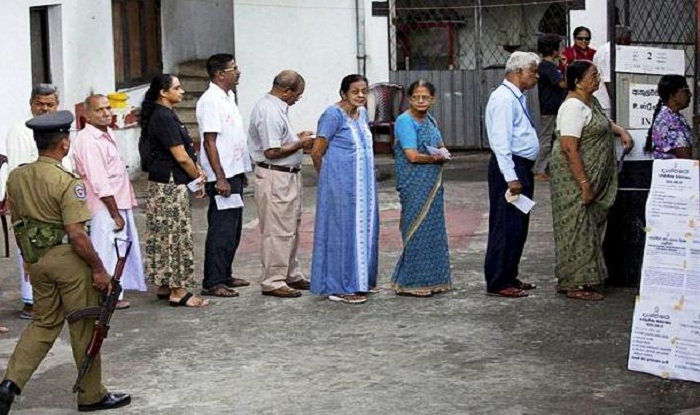Is the hybrid election system flawed?
April 17, 2018 06:17 pm
Sri Lanka’s Local Government Election held on the 10th February while being the largest election held ever in the country was also unique in the fact that it tried out a new hybrid method, doing away with the old and controversial preference system.
In the mixed electoral system 60% of the members are selected through First-Past-The-Post (FPTP) voting system and 40% through the Closed List Proportional Representation.
In the FPTP voting system the public vote for the candidate they wish to appoint and the candidate with the most votes win. Meanwhile in the Closed List Proportional Representation system, the voter has no say on who would get the seat, but the winning party would supply the candidate.
However, the new electoral system brought in mixed results and also criticism.
The amendment proclaimed that 25% of the total number of representatives in each local body should be female and this was deemed to be one of the positive outcomes of the new system.
Dr. P. Saravanamuttu, Executive Director of Centre for Policy Alternatives (CPA), says that he hopes that this will be institutionalized in all levels of government and not just for local government.
Speaking on negative outcomes of the election, Executive Director of the PAFFREL Organization, Rohana Hettiarachchi points out that voters not having preferential voting to select their choice of representative was the main negative factor.
He said that 40% of the members who were selected by the political party were without a people’s mandate. He also mentioned the number of councilors has also doubled through this electoral system, which is a significant increase in the number of elected representatives, meaning an increase in costs.
Another issue witnessed following the local government election was the confusion surrounding the electing heads for LG bodies as some institutions went to parties which were not the victors of the institution at the polls.
Hettiarachchi stated that it was a sad situation that about Rs 1 million to 10 million worth of financial transactions took place during the appointment of chairmen and mayors. He says it is not healthy for a country like Sri Lanka.
Sri Lanka Podujana Peramuna (SLPP), despite winning majority of councils during the past election, secured power in the councils they lost by coming to agreement s with other parties.
Sri Lanka Freedom Party (SLFP) MP Dinesh Gunewardena says that the most significant aspect is the last moment changes that were brought to the bill without studying or thinking of the consequences.
“It is these amendments to the 70:30 that has caused the imbalance and doubts and criticism today. If it was 70:30, whoever won would have had a stable mandate. But that has been nullified by some of these amendments”, says MP Gunewardena.
Minister of Provincial Councils and Local Governments, Faizer Musthapha, also commented on the matter saying that parties have lost control over their members and you could see members switching sides. He points out that when the party loses control of their members, they blame the system.
There are no perfect methods to hold elections, according to Dr. Sujatha Gamage, Senior Research Fellow at LIRNEasia. She claims that the problem is not with the mixed member proportional method, but with the way it was tinkered.
If the legislation was drafted with giving thought to what would happen after the election, these problems would not have cropped up, says Dr. Gamage.
She also mentioned that there is no need to have the same system for all 3 levels of government. Women representation does not have to be at the expense of a bloated local government, said Dr. Gamage.
Introduction of a cutoff point to this system is a need, according to Minister Musthapha.
Attorney at Law Chrishmal Warnasooriya says that the recent election should be considered as a pilot project and consider how to alleviate the problems in a future provincial council election.
According to him, the newly tried out system worked as there was a fairly high turnout of nearly 75-76%.
“I don’t think we need to move away from the ration of what we tried in the local authority election, but yes we have to figure out the calculating part”, said the Attorney.
He also proposes a minimum percentage of votes that a party would garner, and in case where it’s not fulfilled, their votes would not be counted.
Dr. Saravanmuttu suggests a consultative meeting with all the stakeholders where they come up with their particular concerns and try to resolve them.
He further mentions that should this go beyond the September Provincial Elections, time should be taken to revise the system and not in haste.












